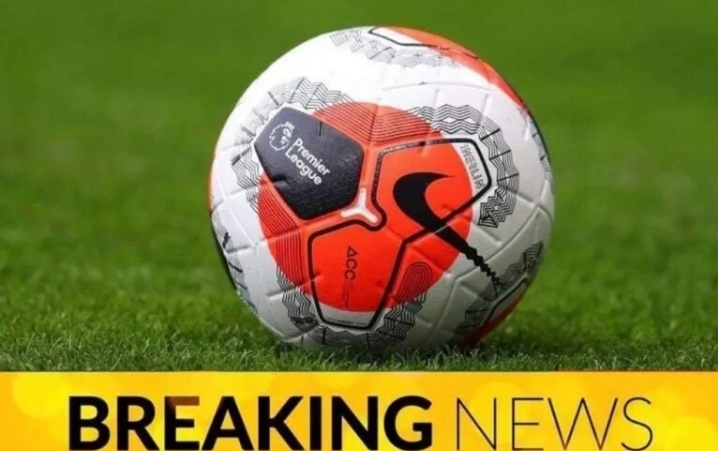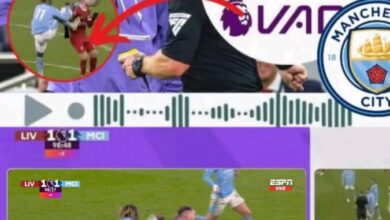Sad news has been announced for Chelsea fans this evening, as Chelsea owner Todd Boehly has just shared devastating news regarding the club’s takeover.

Chelsea Football Club is reportedly experiencing a serious internal conflict, with tensions rising between Todd Boehly, one of the club’s co-owners, and Clearlake Capital, the majority shareholders.
According to a report from The Telegraph, the relationship between Boehly and Clearlake Capital has worsened significantly, reaching what has been described as a “breaking point.” This breakdown in communication and understanding could result in a severe internal struggle, which some sources have likened to a “civil war” within the club’s leadership.
Todd Boehly, an American businessman who holds a minority share in Chelsea, is said to view the current structure of the club’s ownership as unsustainable. He reportedly feels that the ongoing disagreements and the lack of unity among the club’s top investors are creating major challenges that require immediate attention.
In response to this growing friction, Boehly is reportedly considering buying out Clearlake Capital’s shares in the club as part of his plan to assume full control of Chelsea. It has been suggested that Boehly, who is 50 years old, is confident in his ability to quickly gather the necessary £2.5 billion to make an offer to Clearlake for their shares.
This potential buyout aligns with Boehly’s vision for the long-term future of Chelsea, which includes ambitious plans to build a new stadium as part of a broader 20- to 30-year strategy for the club’s development. However, Clearlake Capital, which currently owns a majority 61.5% stake in Chelsea, reportedly has no interest in selling their shares. Instead, they are believed to be more inclined to increase their stake in the club rather than relinquish any ownership.
The fundamental difference in strategic vision between Boehly and Clearlake Capital is thought to be the root cause of their escalating conflict. Boehly seeks full control to implement his vision for the club, while Clearlake appears to favor maintaining or even increasing their current stake, seeing their involvement as a long-term investment.
At this point, there have been no official negotiations between Boehly, Clearlake, or the other investors regarding a potential sale of shares. However, as tensions continue to mount, it is possible that formal discussions could take place soon, as both parties assess their next moves.
Clearlake Capital, a private equity firm co-owned by Chelsea’s other co-owners, Behdad Eghbali and Jose E. Feliciano, acquired its majority stake in Chelsea as part of the BlueCo consortium. This consortium purchased Chelsea from its previous owner, Roman Abramovich, in 2022 for £2.5 billion. As part of the deal, Clearlake and its partners also committed an additional £1.75 billion to further invest in the club. Since that time, around £1.5 billion has already been spent on new player signings to strengthen the team.Currently, the remaining 38.5% of Chelsea’s shares are divided equally between Todd Boehly, Hansjörg Wyss, and Mark Walter, all of whom are also part of the ownership group. Given Clearlake’s unwillingness to sell and Boehly’s potential bid for full ownership, a significant confrontation between the two sides could be on the horizon.The reported internal conflict at Chelsea Football Club between Todd Boehly and Clearlake Capital represents a significant power struggle that could have profound implications for the club’s future. The tensions appear to stem from differing visions for Chelsea’s long-term strategy and operations, particularly regarding the ownership structure and investment approach.
### Key Points of the Conflict:
1. **Escalating Tensions:** Todd Boehly, a co-owner of Chelsea with a minority stake, reportedly believes that the current ownership structure, involving Clearlake Capital as the majority shareholder, is unsustainable. He is concerned about the ongoing disagreements and lack of unity among the club’s top investors, which he feels need urgent resolution.
2. **Potential Buyout:** Boehly is considering buying out Clearlake Capital’s 61.5% stake in Chelsea, believing he can quickly raise the necessary £2.5 billion to make such an offer. This move would enable him to assume full control of the club and implement his long-term vision, including plans for a new stadium and other development projects over the next 20 to 30 years.
3. **Clearlake Capital’s Stance:** Clearlake Capital, a private equity firm co-owned by Behdad Eghbali and Jose E. Feliciano, appears uninterested in selling their majority stake. Instead, they are inclined to maintain or even increase their investment in Chelsea, viewing their involvement as a long-term commitment rather than a short-term opportunity. Clearlake and its partners have already invested heavily in player signings since acquiring the club in 2022.
4. **Strategic Differences:** The fundamental difference between Boehly’s and Clearlake’s strategic visions is believed to be at the core of the conflict. Boehly’s desire for full control contrasts with Clearlake’s approach to keeping their substantial stake and possibly reinforcing it. This divergence could lead to an internal “civil war” as both sides push for their preferred direction.
5. **No Official Negotiations Yet:** Although tensions are reportedly high, no official negotiations have taken place between Boehly, Clearlake, or other investors about a potential sale of shares. However, given the situation’s volatility, formal discussions could be imminent as both parties consider their next steps.
6. **Ownership Structure and Background:** The current ownership structure of Chelsea involves a 61.5% majority held by Clearlake Capital, with the remaining 38.5% equally divided between Todd Boehly, Hansjörg Wyss, and Mark Walter. This consortium, known as BlueCo, purchased Chelsea from Roman Abramovich in 2022 for £2.5 billion, with an additional £1.75 billion commitment for future investments.
### Implications for Chelsea’s Future:
If Boehly proceeds with his plan to buy out Clearlake Capital, it could lead to a dramatic shift in Chelsea’s leadership and strategy. However, given Clearlake’s strong position and unwillingness to sell, this conflict could escalate, potentially affecting the club’s stability, investment strategies, and on-field performance. The outcome of this power struggle will likely determine Chelsea’s direction for the foreseeable future.







